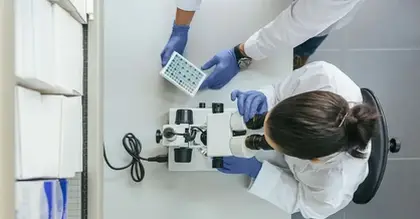Applies to trifluoperazine: oral tablets.
Warning
-
Increased Mortality in Geriatric Patients with Dementia-related Psychosis
- Geriatric patients with dementia-related psychosis treated with antipsychotic agents are at an increased risk of death.a e l m o
- Analyses of 17 placebo-controlled trials in geriatric patients mainly receiving atypical antipsychotic agents revealed an approximate 1.6- to 1.7-fold increase in mortality compared with that in patients receiving placebo.a l m
- Most fatalities appeared to result from cardiovascular-related events (e.g., heart failure, sudden death) or infections (mostly pneumonia).a m
- Observational studies suggest that conventional or first-generation antipsychotic agents also may increase mortality in such patients.a e l
- Antipsychotic agents, including trifluoperazine, are not approved for the treatment of dementia-related psychosis.a l m
Side effects include:
Extrapyramidal reactions (e.g., Parkinson-like symptoms, dystonia, akathisia), drowsiness, fatigue, muscular weakness, insomnia, blurred vision, skin reactions or rash, anorexia, dry mouth, hypotension, amenorrhea, galactorrhea.
For Healthcare Professionals
Applies to trifluoperazine: compounding powder, intramuscular solution, oral concentrate, oral tablet.
Nervous system
Frequency not reported: Drowsiness, dizziness, tremulousness, extrapyramidal symptoms, parkinsonism, acute dystonia/dyskinesia, facial grimacing, opisthotonos, hyperreflexia, tardive dyskinesia/tardive dyskinesia of the facial muscles, involuntary movement of the extremities, neuroleptic malignant syndrome, altered consciousness, autonomic instability, grand/petite mal convulsions, altered cerebrospinal fluid proteins, cerebral edema, headache, akathisia (with motor restlessness and difficulty sitting still)[Ref]
Extrapyramidal symptoms were more common in doses of over 6 mg/day. Symptoms included parkinsonism, torticollis, facial grimacing, trismus, tongue protrusion, abnormal eye movements, akathisia with motor restlessness and difficulty sitting still.
Acute dystonia/dyskinesia typically occurred early in treatment and was likely to be severe in children; this side effect included torticollis, facial grimacing, trismus, tongue protrusion, and abnormal eye movements.
Neuroleptic malignant syndrome was characterized by hyperpyrexia, muscle rigidity, altered consciousness and autonomic instability.
Grand/petite mal convulsions occurred in patients with/a history of EEG abnormalities.[Ref]
Cardiovascular
Frequency not reported: Mild postural hypotension/hypotension, edema/peripheral edema, tachycardia, ECG changes, QT prolongation, T-wave changes, ventricular arrhythmias/fibrillation/tachycardia, atrioventricular block, paroxysmal tachycardia, serious arrhythmias, cardiac arrest, Torsade de pointes, venous thromboembolism, deep vein thrombosis, severe hypotension/fatal hypotension[Ref]
Severe hypotension occurred in patients with specific medical problems (e.g., mitral insufficiency, pheochromocytoma).
ECG changes, including QT prolongation and T-wave distortions, were typically reversible and occurred in patients taking phenothiazine antipsychotics.[Ref]
Dermatologic
Frequency not reported: Skin reactions/disorders, photosensitivity reactions, skin pigmentation, epithelial keratopathy, itching/pruritus, erythema, urticaria, angioneurotic edema, erythema multiforme, contact dermatitis, eczema (up to exfoliative dermatitis)[Ref]
Skin pigmentation and epithelial keratopathy occurred in patients receiving substantial doses for a prolonged duration.
Contact dermatitis occurred in patients who handled phenothiazines.[Ref]
Psychiatric
Dulled feelings and/or agitation have occurred at low doses, especially in non-psychotic patients.[Ref]
Frequency not reported: Transient restlessness, stimulation, insomnia, confusion/toxic confusional states, feelings dulled, agitation, increased aggressiveness, withdrawal reactions, reactivation of the psychotic processes, catatonic-like states[Ref]
Other
Frequency not reported: Lassitude, fatigue, hyperpyrexia, sudden, unexplained death, signs of persistent infection, neonatal drug withdrawal syndrome, autonomic reactions, reversed epinephrine effect, intensification/prolongation of the action of atropine/heat/organophosphorous insecticides/central nervous system depressants (e.g., opiates, analgesics, antihistamines, barbiturates, alcohol)[Ref]
Sudden death from cardiac arrest or asphyxia (cough reflex failure) has been reported in patients receiving phenothiazines.[Ref]
Hematologic
Frequency not reported: Blood dyscrasias, agranulocytosis, pancytopenia, leukopenia, thrombocytopenia, thrombocytopenic purpura, eosinophilia, hemolytic anemia, aplastic anemia[Ref]
Ocular
Frequency not reported: Blurred vision, abnormal eye movements, oculogyric crisis, lenticular opacities, pigmentary retinopathy, lacrimation, keratoconjunctivitis, miosis and mydriasis, lenticular and corneal deposits[Ref]
Lenticular and corneal deposits occurred in patients receiving substantial doses for a prolonged duration.[Ref]
Gastrointestinal
Frequency not reported: Dry mouth, constipation, tongue protrusion, nausea, vomiting, obstipation, ileus/adynamic ileus, atonic colon[Ref]
Genitourinary
Frequency not reported: Urinary hesitancy/retention, lactation, galactorrhea, menstrual irregularities, false-positive pregnancy tests, amenorrhea, ejaculation disorders/impotence, priapism[Ref]
Musculoskeletal
Frequency not reported: Muscular weakness, torticollis, trismus, muscle rigidity, systemic lupus erythematosus-like syndrome[Ref]
Metabolic
Frequency not reported: Anorexia, weight gain/change, hyperglycemia, hypoglycemia, increased appetite[Ref]
Respiratory
Frequency not reported: Pulmonary embolism, nasal congestion, asthma, bronchospasm, laryngeal edema[Ref]
Hepatic
Frequency not reported: Mild cholestatic jaundice, liver damage, jaundice, biliary stasis[Ref]
Endocrine
Hyperprolactinemia occurred in patients given higher doses, and was associated with the development of galactorrhea, amenorrhea, and/or gynecomastia.[Ref]
Frequency not reported: Gynecomastia, hyperprolactinemia/elevated prolactin levels, endocrine disturbances[Ref]
Hypersensitivity
Frequency not reported: Other allergic reactions, anaphylaxis/anaphylactoid reactions[Ref]
Oncologic
Frequency not reported: Hormone-dependent breast neoplasms[Ref]
Renal
Frequency not reported: Glycosuria[Ref]




